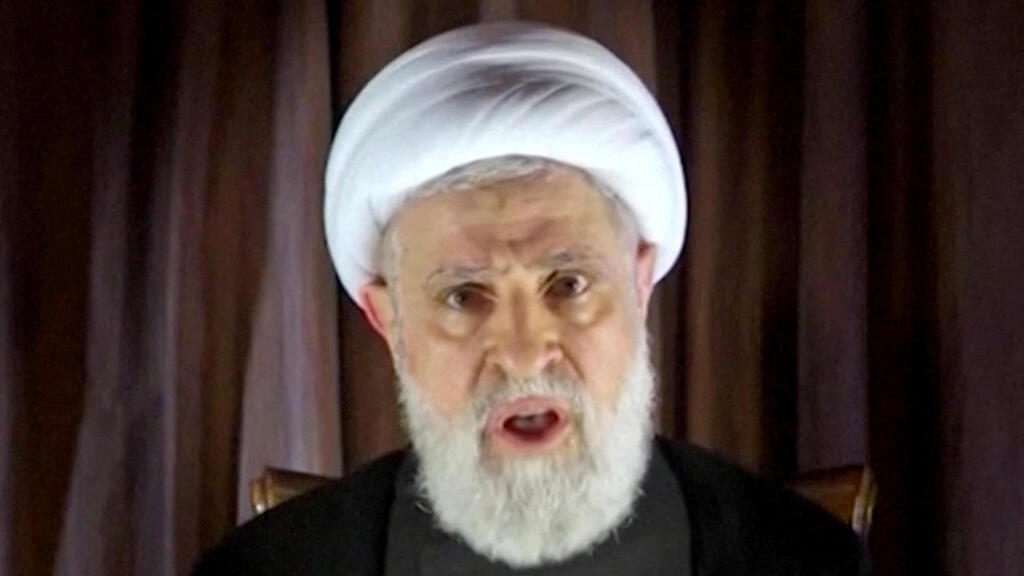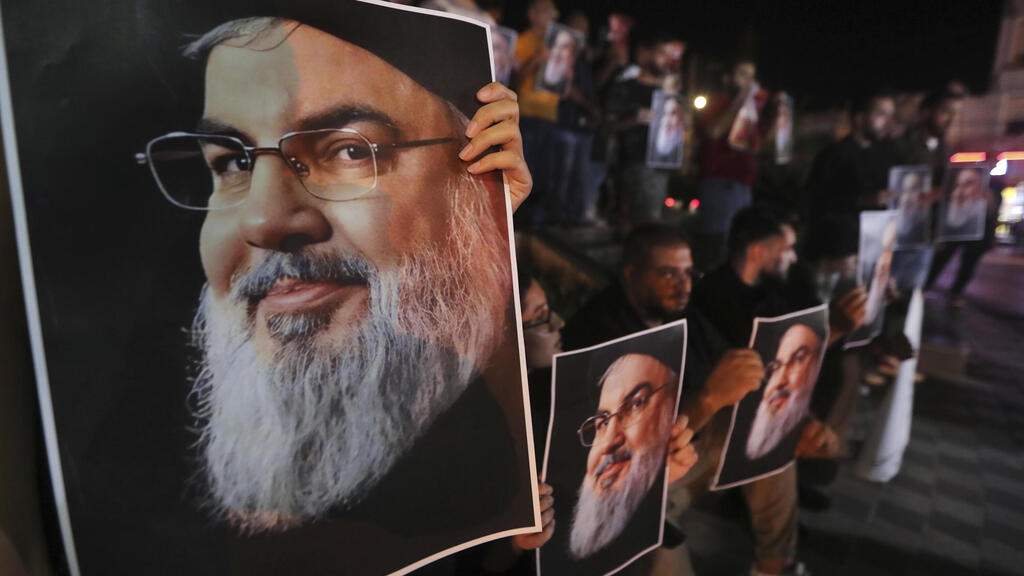Getting your Trinity Audio player ready...
Naim Qassem, Hezbollah's deputy leader—or as he is also known, the last survivor—deviated on Tuesday from his slain boss's stance. Until his final moments, Hassan Nasrallah maintained that his terror group's fire on Israel would cease only when the fighting in Gaza ended.
Qassem, however, expressed support for Lebanon's Parliamentary Speaker Nabih Berri's call for a cease-fire before any further discussions on the conflict's future could take place.
3 View gallery


Hezbollah Deputy Secretary-General Naim Qassem
(Photo: ReutersTV/Al Manar TV /REUTERS)
Is this policy shift an admission of defeat? Probably not, as shown by the continued rocket fire on northern Israel, including Tuesday's barrage of over 100 rockets and missiles targeting Haifa and surrounding areas.
Still, it marks a departure from Hezbollah's previous position and is endorsed by Berri, a Shiite leader who is both an adversary and ally of Hezbollah. Notably, Berri’s cease-fire call made no mention of the Palestinian issue, and other Lebanese faction leaders have similarly avoided linking the Gaza war to the situation in Lebanon.
This puts Israel in a difficult position. Stopping the war now would allow Hezbollah to rebuild its military strength after suffering severe blows. On the other hand, prolonging the conflict comes with heavy economic, military and international costs, not to mention the toll in lives and injuries, all before any agreement to force Hezbollah’s withdrawal north of the Litani River is reached.
An Israeli withdrawal from southern Lebanon would allow Iran to reinvest billions of dollars to rebuild Hezbollah into an even greater threat, even if the group temporarily pulls back from the border. Prolonged fighting also serves Tehran poorly, as Hezbollah can no longer effectively shield Iran from potential attacks on its nuclear facilities.
Israel also cannot accept a cease-fire without a meaningful diplomatic resolution—one that would avoid repeating the Taif Agreement of 1989, which disarmed all factions except Hezbollah. That deal left the Shiite group as Lebanon’s most powerful force.
This may be what diplomats and mediators are hoping for: to leverage Hezbollah’s current weakness to create real change in Lebanon, first by cutting off arms to Hezbollah, deploying the Lebanese army to more territory, and disarming non-state groups. Ideally, this would also free Lebanese politics from Hezbollah’s grip, allowing for the appointment of a new president and prime minister.
Many in Lebanon would welcome the end of Iran’s influence, and the current crisis could provide the U.S. with an opportunity to facilitate significant leadership change there.
A key point that should not be overlooked is that victory will not be achieved unless Israel has a clear goal and strategy—true for both of its fronts.
Israel is engaged in a multi-front war against Gaza, Lebanon, Syria, Iran, Iraq and Yemen, with no resolution in sight for any of them.
 Avi Issacharof Photo: Yuval Chen
Avi Issacharof Photo: Yuval ChenIn Gaza, IDF troops have returned to Jabaliya, while Hamas continues launching rockets from Khan Younis. Yahya Sinwar is reportedly alive and communicating with his leadership in Qatar, and 101 hostages remain in captivity.
The strikes on Lebanon and the ground offensive in its south have yet to bring significant change, while missiles continue to be fired from Yemen and Iraq, and Israel teeters on the brink of an attack on Iran.
Though the military operations are necessary and conducted impressively despite the government's shortcomings, the biggest failure remains the lack of a strategy or exit plan. Without them, Israel's tactical military successes could ultimately lead to defeat.
Get the Ynetnews app on your smartphone:





